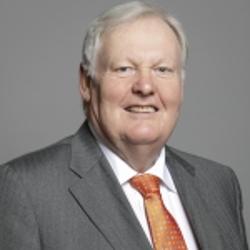Children: Disadvantaged
(asked on 27th June 2023) - View SourceQuestion to the Department for Education:
To ask His Majesty's Government what steps they are taking to ensure that children from disadvantaged backgrounds have equal access to digital learning resources and technology.
Education is a devolved matter, and the response outlines the information for England only.
Schools are responsible for making decisions about what technology to buy to meet their pupils’ needs, and how best to use it support their teaching.
The government delivered over 1.95 million laptops and tablets to schools, trusts, local authorities and further education (FE) providers for disadvantaged children and young people as part of a £520 million government investment to support access to remote education and online social care services. These laptops and tablets are now owned by schools, trusts, local authorities or FE providers, who can lend them to children and young people who need them the most. These laptops and tablets were an injection of support on top of the estimated 2.9 million that were already owned by schools before the start of the COVID-19 pandemic.
Building on its success in the pandemic, Oak National Academy was established as an arm’s length body on 1 September 2022, working independently of the government and collaboratively with the education sector. Oak aims to support teachers to improve curriculum delivery, reduce workload and support improved pupil outcomes, and continues to provide a remote education contingency. Oak will work with teachers across the country, giving them and their pupils access to free, optional, and adaptable high-quality digital curriculum resources.
The government has provided over £2.6 billion of pupil premium funding in the 2022/23 financial year to support pupils from lower income families. Rates will increase by 5% for 2023/24, taking total pupil premium funding to £2.9 billion. As set out in the menu of approaches, schools can use both pupil premium and recovery premium on technology and other resources that support high quality teaching.
Social tariffs offer low-cost landline and broadband services for those on certain means tested benefits. The government is encouraging those providers who do not currently offer social tariff packages, to do so. A range of affordable tariffs, designed specifically to support low-income families, are now available to 99% of UK households. BT, Virgin Media O2, Sky, Vodafone, and other providers offer broadband and mobile social tariffs for as little as £10 per month, representing a significant saving for households in receipt of Universal Credit and other means tested benefits.
In addition, the government secured a range of commitments from the UK’s major broadband and mobile providers to support families through the global rise in the cost of living. These commitments include more manageable payment plans, switching to a cheaper package free of charge, or taking a more affordable social tariff if the customer is eligible. The government encourages people to contact their provider to see what support is available. Awareness and take up of social tariffs need to improve. The Department for Culture, Media and Sport is working with the sector to urge those providers who have yet to offer a social tariff to do so, and for the industry to ensure that offers are publicised.

